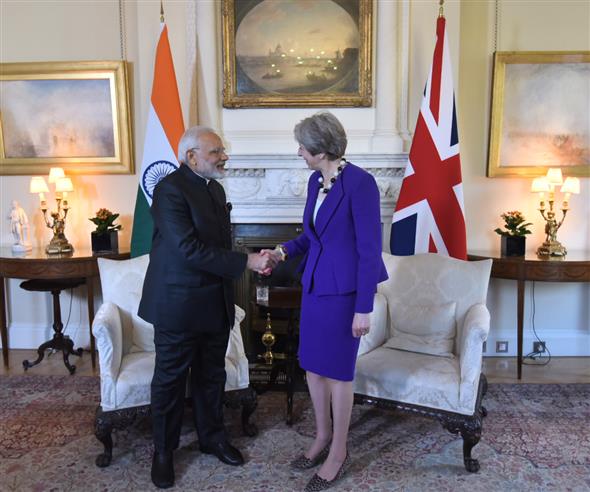

Follow us on:  
|


Prime Minister Narendra Modi met with his UK counterpart Theresa May at 10 Downing Street in London on Wednesday April 18, 2018 [Image: PMO, India]
He capped off his diplomatic tour with stop in Berlin where he met with German Chancellor Angela Merkel.
Although no details have been released about their talks, Modi’s visit with Merkel is seen as a testament to strengthening India-Germany cooperation.
Ministry of External Affairs spokesperson Raveesh Kumar said that Modi’s visit “demonstrates India’s mutual desire to strengthen the strategic partnership“.
Among European nations, Germany is India’s largest trading partner.
Modi had been on a five-day trip to Britain and Sweden.
On Tuesday, Modi attended the inaugural session of the India-Nordic Summit in Stockholm, which was heralded by Swedish media as a strategic boost in ties between the two countries.
Modi also met with his Swedish counterpart Stefan Lofven who expressed his hopes for continued bilateral cooperation with India in defence, and science and development.
“I am confident that in the future in this sector, especially in defence production, there will be many opportunities for bilateral cooperation,” Lofven said.
Modi for his part stressed partnerships in energy, traffic and waste management and innovation technologies.
In London, where Modi spent nearly three days, the prime minister addressed the Indian diaspora, but the bulk of his trip to Britain was spent finalizing trade deals worth $1.3 billion.
He also discussed with UK Prime Minister Theresa May the prospects for a post-Brexit bilateral free trade agreement. His talks with British leaders also focused on cooperation in the areas healthcare, innovation, digitization, electric mobility, clean energy, and cyber security.
Modi also attended the Commonwealth Summit in London (the first for India in nearly a decade), and met with Queen Elizabeth and Prince Charles.
The BRICS Post with inputs from Agencies